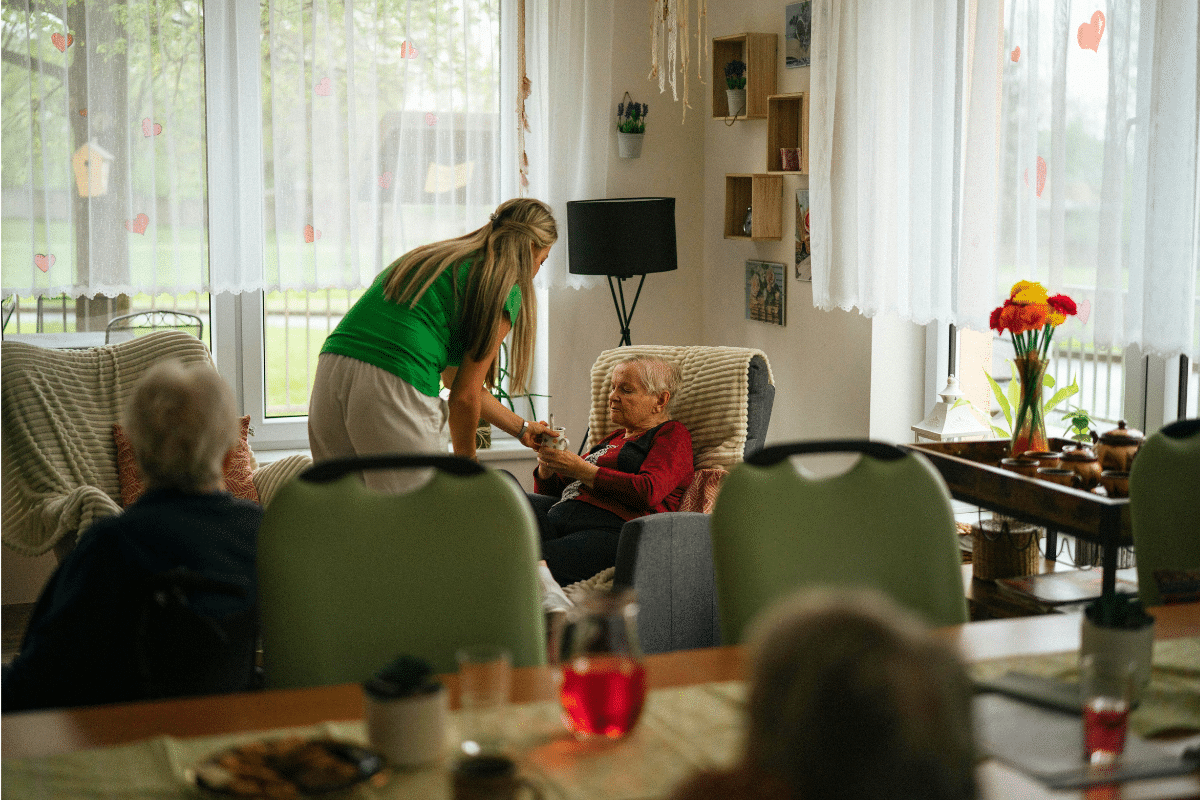Realizing that you or a loved one needs to move into a nursing home can…
Managing life or the life of a loved one who suffers from Alzheimer’s can be extremely difficult. Sadly, many of us know someone who has suffered from Alzheimer’s or other dementia diseases. In the final stages, there comes a time when your loved one can no longer speak, recognize family members, or move purposefully. Estate planning helps you or an aging parent prepare for a dementia or Alzheimer’s diagnosis by allowing you to live your remaining years with dignity and to make sure your wishes are known and carried out.
A Question of Quality of Life
A terrible characteristic of Alzheimer’s and other forms of dementia is that people may have lost all that made them who they once were, and yet, they remain physically healthy enough to continue, in that absent state, for many years.
Faced with that poor quality of life, many would choose to stop hand-feeding and hydration and allow the dying process to begin. However, long before that time arrives, you or your loved one has lost the capacity to make and express that decision. If you no longer have an effective way to be heard, institutions providing memory care are legally and morally obligated to continue hand-feeding and hydration until the bitter end. Thus, it is crucial you to make your wishes known while are still capable and do the proper planning to ensure they are upheld.
A terrible characteristic of Alzheimer’s and other forms of dementia is that people may have lost all that made them who they once were, and yet, they remain physically healthy enough to continue, in that absent state, for many years.
Legal Documents to Communicate Your Wishes
Existing health care powers of attorney usually only address artificial nutrition and hydration, like feeding tubes and IV for end-of-life care. Until recently, the documents didn’t include hand-feeding. Despite your health care agent’s requests, caregivers would be required to continue cajoling, persuading, and insisting that you continue to be fed by hand. This process would rely on a primitive reflex in which touching the spoon to the corner of your mouth would result in an involuntary opening of the mouth. This could be misinterpreted as a desire to eat, and the sad situation could drag on and on without any way to intervene.
In especially tragic cases, where the swallowing reflex has become diminished, you could aspirate food and fluid into your lungs, resulting in pneumonia.
Thanks to pioneering efforts by End of Life Washington and End of Life Choices in New York, a dementia directive emerged to supplement existing health care directives and to specifically address this issue. When a person has become unable to feed themselves, can no longer use the toilet, and can no longer move or speak or recognize loved ones, the person may have expressed, in a dementia-related illness, that hand-feeding be stopped – or that feeding be restricted only to foods that they demonstrably enjoy. The dementia document further requests that the person be kept comfortable and out of pain through careful medication and other measures to relieve any anxiety, agitation, or insomnia.
Expressing Your Wishes Before It’s Too Late
Especially when the dementia diagnosis is first made, and while you or a loved one still have the capacity to make and communicate health care decisions, this supplemental health care directive must be considered. Creating a video expressing your wishes for end-of-life care is also a very good idea. That way, even after capacity has been lost, caregivers can see you as you used to be, expressing wishes while you were still able to communicate them.
Our estate planning and elder law firm is dedicated to informing you of issues affecting seniors who may be experiencing declining health. Our elder law attorneys help you and your loved ones prepare for potential long-term medical expenses and the need to transition to in-home, assisted living, nursing home, or memory care.
Please contact our elder law attorneys if you would like to talk about a dementia diagnosis and how to create a legal document reflecting your or your loved one’s wishes. We look forward to the opportunity to work with you.




Comments (0)